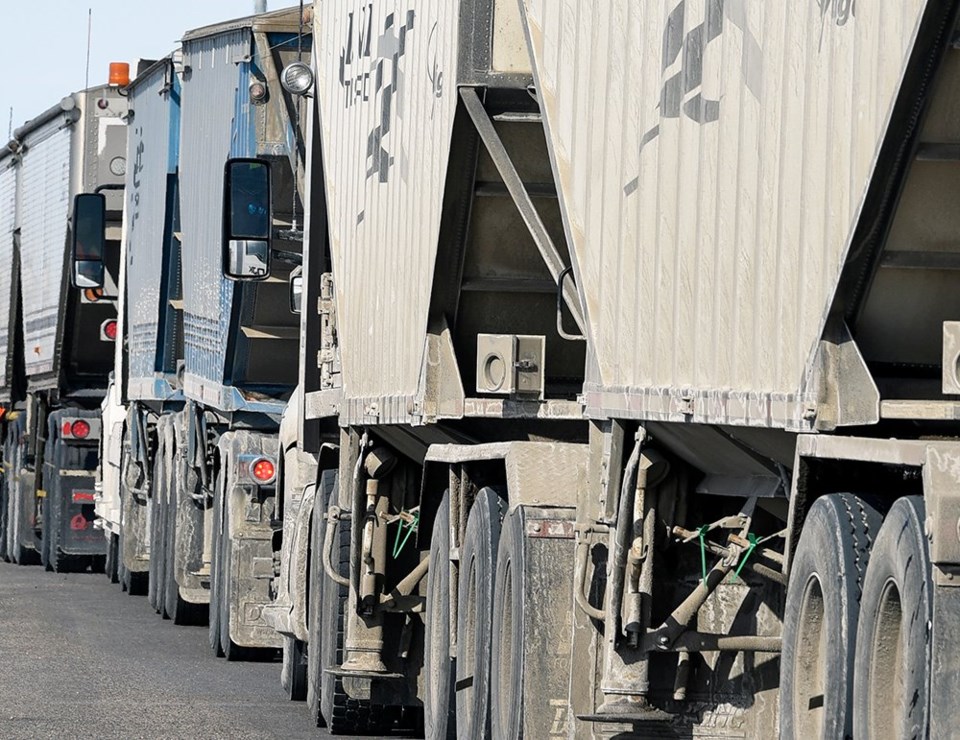People in the grain logistics system say they fear many Canadian and American truckers might be unvaccinated and therefore banned from crossing the border after mid-January.
“It is going to have an impact, no doubt,” said Diane Gray, president and chief executive officer of CentrePort Canada, Winnipeg’s inland international transportation hub.
“There isn’t going to be the same number of drivers that are going to go south or come north.”
The U.S. requirement for truckers to have been vaccinated to enter the country is expected to be in place for Jan. 22. The Canadian mandate hits Jan. 15.
To this point truckers have been exempted from mandates, although most truckers are believed to be vaccinated. A November survey of U.S. drivers conducted by Conversion Interactive Agency said 55 percent of responding truckers were vaccinated, nine percent intended to become vaccinated and 36 percent did not intend to become vaccinated.
It is unclear what the impact of the mandates will be on increasing the trucker vaccine uptake rate.
Canadian Pacific Rail’s Jon Harman, who oversees the company’s grain and fertilizer businesses, said some companies appear to be considering rail as an alternative.
“We have seen a lot more rate requests come in for cross-border traffic… because of this,” said Harman, who like Gray spoke at the Fields on Wheels conference Dec. 14.
Switching off the roads and onto rails isn’t always easy. Railways are designed for much bigger loads going to central locations. Trucks can access thousands of locations with small loads.
“The destinations are not necessarily rail-served,” said Harman.
“We’re trying to connect origins with rail-served destinations and then working out trucking options to get them to their final destinations.”
While most bulk grain traffic in Canada flows along rail lines, much agricultural trade crosses the border in trucks. For example, there is much truck traffic down the middle of the continent, from Winnipeg to Iowa, with pigs, feed grains and crop inputs crisscrossing the region on a daily basis.
Processed goods often travel by truck.
Truckers have been some of the most-affected workers during the pandemic. Early on truckers found some gas stations unwilling to allow them to use their washrooms and many restaurants banned or discouraged truckers from entering their premises.
But there have been many attempts to ensure truck traffic does not seize up. Hundreds of Manitoba truckers received early vaccinations on the North Dakota border after the Manitoba government arranged the jabs with the bordering state.
Anything that threatens the flow of vital agricultural inputs in the period leading up to spring is sure to spook farmers.
It’s also frightening for companies, industries and others who rely on trucks for cross-border movement.
“It’s not good if you’re a shipper,” said Gray.
Few were surprised by what Gray and Harman said.
“I’ve heard much the same,” commented Mark Hemmes of federal grain monitor Quorum Corp.

